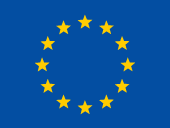The DAAD is the largest funding organisation in the world supporting the international exchange of students and scholars. Since it was founded in 1925, more than 1.5 million scholars have received funding via DAAD.
The DAAD supports the internationalisation of German universities, promotes German studies and the German language abroad, and runs initiatives for universities in developing countries, advising decision makers on matters of cultural, educational and development policy.Its budget is derived mainly from the federal funding for various ministries, primarily the German Federal Foreign Office, but also the European Union and a number of enterprises, organisations and foreign governments. The DAAD Regional Office in New Delhi office, established in 1960, promotes academic exchange between Germany and India, Bangladesh, Bhutan, Nepal and Sri Lanka. It provides information about education in Germany, grants scholarships to students, invites scientists from Bangladesh, Bhutan, India, Nepal and Sri Lanka to Germany as well as those from Germany to these countries, and supports bilateral research projects.
Meanwhile, The DAAD network in the region includes Information Centres in Chennai and Pune, Information Points in Bangalore, Mumbai and Dhaka, DAAD Lecturers and Language Assistants at selected universities and institutions in India, DAAD Young Ambassadors, DAAD Research Ambassadors, numerous alumni clubs with over 5000 former scholarship holders. The DAAD Regional Office New Delhi has close ties with the Department of Science and Technology (DST), Department of Education , Ministry of Human Resource Development (HRD), University Grants Commission (UGC), Council of Scientific and Industrial Research (CSIR), Indian Council for Cultural Relations (ICCR), Indian Institutes of Technology (IIT) and Indian Institutes of Management (IIM) among others. It is a part of the German House for Research and Innovation (DWIH) - New Delhi. To learn more about the German Academic Exchange Service (DAAD) India, click here: www.daaddelhi.org
Germany’s higher education institutions enjoy an excellent reputation. Teaching and research provide key impulses for innovation and progress. German universities combine research and studies and have been the scene for ground-breaking discoveries such as the printing press, computer and mp3 that have become inseparable parts of our modern lives. Every year, thousands of international students and scholars choose to study in Germany. There are very good reasons for this. These include among others International Programmes taught in English medium, excellent quality of education, no tuition fees, promising career opportunities and above all the vibrant social and cultural milieu.
There are various kinds of institutions of higher education in Germany. A majority of these belong to either of the following categories: Universities (including Universities of Technology, abbr. TU) are research-oriented and offer a wide variety of subjects. These can award doctorate degrees. Universities of Applied Sciences (Fachhochschulen, abbr. FH), on the other hand, are practice-oriented and offer courses mainly in engineering, business administration, social sciences and design. These have strong links to the industry and offer possibilities like joint supervision of the professor and a company for a master thesis. Fachhochschulen do not award doctorate degrees, however as a master degree holder from a Fachhochschule, one is in principle eligible to apply for PhD at a university.


